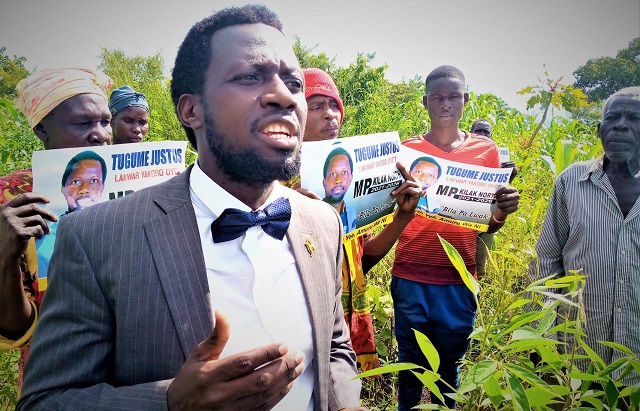
Kampala, Uganda | THE INDEPENDENT | Independent parliamentary candidates in the Acholi sub-region are promising to address the challenges in the education and health sectors.
52 independent candidates are contesting for various parliamentary seats in Gulu, Omoro, Nwoya and Amuru district. The rest are flag bearers of different political parties which include National Resistance Movement, Forum for Democratic Change-FDC, Democratic Party and Alliance for National Transformation.
Justus Tugume who is seeking to unseat the incumbent Anthony Akol in Kilak North Constituency in Amuru has pledged to tackle unemployment among the youth, improve the level of education and increase health centres in the area.
Kevin Anena Okumu, the Kilak South County candidate says when elected, he will focus on leadership that supports the electorate to embrace proper land utilization to eradicate poverty.
Solomon Ocira, a candidate for the Kilak South parliamentary race says he will put his resources to build market shelters for rural women in the constituency to improve their household incomes.
Alex Omona who is vying for Gulu city East Division seat pledged to address gaps in the health sector, ensure quality education and nurture sports talents among the youth.
However, Angela Akullu, a voter in Gulu city East Division expressed reservations whether an MP is mandated to repair or construct schools, hospitals, roads and bridges in their communities.
Alex Akera, another concerned voter from Kilak South reasons that some aspirants simply sway voters by talking big. Akera notes that some voters burden MPs to pay school fees for children or students, attend weddings and burials in their constituencies which is not their mandate.
But Article 79 (1) of the Constitution states that the cardinal role of a Member of Parliament is to debate and pass laws, analyze and approve the annual national budget, monitor and bring to the attention of Ministers and the public, government misuse of funds, violations of rule of law and unlawful activities.
MPs also represent their constituents views in Parliament, hold consultative meetings with their constituents, update them on the activities of Parliament and government policies and gather their views and concerns that affect their livelihood.
An Afro barometer survey in 2000 found that 48% of voters thought their MPs were not effective because they neglect their constituencies only appearing during election campaign periods. Whether the MP attends and represents them well in Parliament is beside the point.
On the other hand, Africa Leadership Institute’s Parliamentary Scorecard 2006-2007 shows that on average, Uganda’s MPs attended only 23 out of 89 plenary sessions, indicates that masses still need heightened civic education on the role of a lawmaker.
******
URN
 The Independent Uganda: You get the Truth we Pay the Price
The Independent Uganda: You get the Truth we Pay the Price





